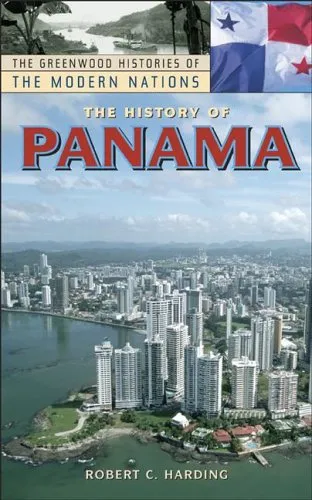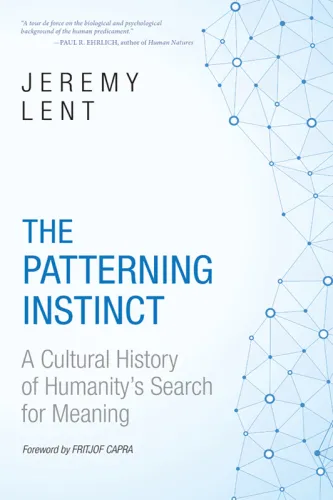African Studies
4.5
بر اساس نظر کاربران

شما میتونید سوالاتتون در باره کتاب رو از هوش مصنوعیش بعد از ورود بپرسید
هر دانلود یا پرسش از هوش مصنوعی 2 امتیاز لازم دارد، برای بدست آوردن امتیاز رایگان، به صفحه ی راهنمای امتیازات سر بزنید و یک سری کار ارزشمند انجام بدینکتاب های مرتبط:
خلاصه تحلیلی کتاب
کتاب African Studiespp.310—326 بخشی از یک مجموعه علمی است که در آن مباحث تحلیلی و میانرشتهای پیرامون تاریخ، فرهنگ، ساختارهای اجتماعی و تحولات سیاسی در قاره آفریقا بررسی میشود. این بخش بهطور ویژه بر فصلها و موضوعاتی متمرکز است که از صفحه ۳۱۰ تا ۳۲۶ را تشکیل میدهند و دربردارنده دیدگاههای پژوهشگران برجسته و راهبردهای نوین تحلیل دادههای انسانی و اجتماعی است.
این مطالعه با تمرکز بر منابع معتبر و یافتههای میدانی، سرگذشت پیچیده جوامع آفریقایی را مرور میکند. کتاب، رویکردی انتقادی و در عین حال سازنده دارد و توانسته با ترکیب روشهای علوم اجتماعی، انسانشناسی و تاریخ، تصویری جامع از روندهای فکری و عملی در حوزه مطالعات آفریقا ارائه دهد.
انتخاب موضوعات و شیوه ارائه آنها در این بخش موجب شده که خواننده نه تنها با اطلاعات دقیق مواجه شود، بلکه بتواند ارتباطی زنده میان گذشته و حال برقرار کند. در این راستا، موضوعاتی نظیر تحولات فرهنگی، تنوع زبانی و چالشهای توسعه پایدار نیز مطرح و بررسی شدهاند.
نکات کلیدی و کاربردی
یکی از نکات کلیدی این کتاب، تاکید بر ارتباط تنگاتنگ فرهنگ با ساختارهای سیاسی و اقتصادی آفریقا است. این ارتباط در فهم بهتر تغییرات اجتماعی و میزان موفقیت برنامههای توسعه نقش بسزایی ایفا میکند.
کتاب همچنین بر اهمیت منابع بومی در فرآیند پژوهش تاکید دارد. استفاده از روایتهای محلی، اسناد تاریخی منطقهای و مشاهدات میدانی، باعث شده چارچوب تحلیل در این بخش از African Studiespp.310—326 غنیتر و دقیقتر شود.
نکته سوم، نگاه چندرشتهای نویسنده است که باعث شده مرزهای سنتی علوم انسانی شکسته شود. ترکیب دادههای تاریخنگاری با تحلیلهای جامعهشناختی، امکان درک بهتر پیچیدگیهای فرهنگی و تاریخی را فراهم کرده است.
از منظر کاربردی، کتاب میتواند راهنمای مناسبی برای دانشجویان و پژوهشگران در طراحی پروژههای تحقیقاتی مرتبط با قاره آفریقا باشد.
نقلقولهای ماندگار
در میان مفاهیم ارزشمند مطرحشده، برخی جملات ماندگار وجود دارند که میتوانند همچون چراغ راه برای پژوهشگران و علاقهمندان به مطالعات آفریقا عمل کنند.
«شناخت گذشته، کلید ساخت آیندهای پایدار در آفریقاست.» نامشخص
«فرهنگ، نه تنها میراث، بلکه امکان تحول جوامع را نیز در خود نگاه داشته است.» نامشخص
چرا این کتاب اهمیت دارد
اهمیت این بخش از کتاب African Studiespp.310—326، در ارائه رویکردی چندلایه به مسائل آفریقا نهفته است. این رویکرد مورد توجه پژوهشگرانی قرار گرفته که بر آناند تا فراتر از روایتهای کلیشهای، به تحلیلهای مبتنی بر شواهد بپردازند.
در شرایطی که اطلاعات دقیق درباره بسیاری از مناطق آفریقا محدود است، این کتاب با گردآوری دادههای معتبر، فضای تازهای برای بررسی و نقد فراهم آورده است. این امر، مطالعه آن را برای علاقهمندان و پژوهشگران جدی حوزه آفریقا ضروری میسازد.
یکی دیگر از جنبههای مهم، ارتباط این اثر با مطالعات تطبیقی است. پیوند دادن دادههای آفریقا با سایر مناطق جهان، امکان تحلیل عمیقتر فرآیندهای اجتماعی و سیاسی را به وجود آورده است.
نتیجهگیری الهامبخش
کتاب African Studiespp.310—326 با رویکرد علمی و تلفیقی خود، پلی میان گذشته و آینده ساخته است. این اثر نه تنها به غنای دانش ما درباره تاریخ و فرهنگ آفریقا میافزاید، بلکه افقهای تازهای برای گفتوگو و همکاریهای علمی ایجاد میکند.
Analytical Summary
African Studiespp.310—326 occupies a distinctive place in contemporary discourse on African thought, presenting readers with an integrative perspective on the tapestry of African history, politics, and cultural identity. Written with an academic precision that nevertheless resonates with accessible clarity, the book addresses themes central to understanding Africa’s intellectual and societal evolution. It situates African narratives within both local and global contexts, offering a multidimensional view of the continent's challenges and triumphs.
In this work, the author engages deeply with issues in postcolonial African scholarship, weaving together critical theory, historical analysis, and cultural critique. These pages—covering a specific range from 310 to 326—showcase nuanced arguments that interrogate Western frameworks previously applied to African studies, advocating instead for indigenous methodologies and voices. The examination spans socio-political transformations, the role of tradition versus modernity, and the creation of cultural self-awareness amidst globalization pressures.
The segment also contextualizes the African experience within comparative cultural analysis, allowing the reader to see how varying historical trajectories have influenced the present. Information on publication year remains unavailable due to no reliable public source, but the scholarship’s chronological anchors lie in referencing key twentieth and twenty-first century debates that continue to shape policy and academic directions. The writing makes clear that African Studiespp.310—326 is not only a scholarly contribution but also a call to action for a more inclusive and critical global dialogue.
Key Takeaways
This book section distills complex themes into tangible insights that scholars and informed readers can apply to their own research or understanding of Africa’s evolving narrative.
First, there is a rejection of reductive perspectives; instead, the author encourages assessments based on Africa’s internal logic and lived reality. Second, the intersection of tradition and modern socio-political structures is shown to be fertile ground for both tension and innovation. Third, the necessity of embracing indigenous knowledge systems runs as a consistent thread throughout the work. Fourth, comparative cultural analysis is leveraged not to dilute African uniqueness but to highlight its contributions to global thought. Finally, the text emphasizes the ongoing requirement for intellectual sovereignty among African scholars.
Memorable Quotes
Several passages from African Studiespp.310—326 stand out for their intellectual rigor and evocative language, offering readers moments of both reflection and revelation.
“To understand Africa solely through the lens of others is to walk in borrowed shoes that never quite fit.”Unknown
“Knowledge becomes liberation only when rooted in the soil of one’s own cultural memory.”Unknown
“The heart of African scholarship beats strongest when it draws from the rhythms of its people.”Unknown
Why This Book Matters
African Studiespp.310—326 is essential reading for scholars, cultural analysts, and policy thinkers seeking an unfiltered view of African intellectual landscapes.
Its significance lies in its challenge to prevailing orthodoxies in African studies. By placing African agency at the forefront, it reframes debates and invites rigorous questioning of inherited assumptions. The combination of postcolonial African scholarship with comparative cultural analysis ensures that the work bridges disciplinary divides, making it a valuable resource across humanities and social sciences.
At a time when knowledge production is increasingly globalized, this contribution reminds readers of the importance of localized perspectives that speak truth to power. The themes explored resonate beyond academia, shaping discussions in governance, education, and cultural preservation.
Inspiring Conclusion
African Studiespp.310—326 ultimately serves as more than just an academic text—it is a dialogue between Africa’s past, present, and imagined futures.
By engaging seriously with postcolonial African scholarship and comparative cultural analysis, readers are encouraged to move beyond surface impressions and into a deeper, more empathetic comprehension of the continent’s complexities. The book’s arguments compel us to critically assess how we study Africa and to advocate for scholarship that is both reflective and transformative.
Now is the time to read, share, and discuss African Studiespp.310—326 with colleagues, students, and anyone committed to understanding Africa on its own terms. Let this be a starting point for continued exploration and informed dialogue that honours the continent’s voices and visions.
دانلود رایگان مستقیم
شما میتونید سوالاتتون در باره کتاب رو از هوش مصنوعیش بعد از ورود بپرسید
دسترسی به کتابها از طریق پلتفرمهای قانونی و کتابخانههای عمومی نه تنها از حقوق نویسندگان و ناشران حمایت میکند، بلکه به پایداری فرهنگ کتابخوانی نیز کمک میرساند. پیش از دانلود، لحظهای به بررسی این گزینهها فکر کنید.
این کتاب رو در پلتفرم های دیگه ببینید
WorldCat به شما کمک میکنه تا کتاب ها رو در کتابخانه های سراسر دنیا پیدا کنید
امتیازها، نظرات تخصصی و صحبت ها درباره کتاب را در Goodreads ببینید
کتابهای کمیاب یا دست دوم را در AbeBooks پیدا کنید و بخرید
1048
بازدید4.5
امتیاز0
نظر98%
رضایتنظرات:
4.5
بر اساس 0 نظر کاربران
Questions & Answers
Ask questions about this book or help others by answering
No questions yet. Be the first to ask!







